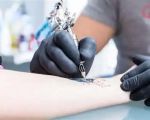Can Tattoo Shops Open in Pennsylvania? Understanding the Regulations
- 1. Tattoo Shop Regulations in Pennsylvania
- 2. Getting Licensed to Open a Tattoo Shop
- 3. Health and Safety Requirements for Tattoo Shops
- 4. Penalties for Violating Tattoo Shop Regulations
- 5. Real-Life Experience in Opening a Tattoo Shop
1. Tattoo Shop Regulations in Pennsylvania
If you're considering opening a tattoo shop in Pennsylvania, you may be wondering about the regulations governing the tattoo industry in the state. Thankfully, Pennsylvania has clear rules and guidelines to ensure that tattoo shops operate safely and legally. Tattooing in Pennsylvania is regulated by the state’s Department of Health, and it’s important to understand these regulations before starting your business.
The good news is that, yes, tattoo shops can open in Pennsylvania! However, it’s essential to know the legal steps involved to ensure your shop is fully compliant with state laws. When I decided to look into this myself, I found that navigating the legal requirements could be a bit tricky, but once I got the hang of it, I felt much more confident about the process.
2. Getting Licensed to Open a Tattoo Shop
The first step in opening a tattoo shop in Pennsylvania is obtaining the proper licenses. As with most businesses, you’ll need a business license to operate in your area. But, since tattooing involves direct skin contact, you’ll also need additional licenses to ensure your shop meets health and safety standards.
2.1. Tattoo Artist Certification
Every tattoo artist working at your shop must be properly certified. In Pennsylvania, artists must complete a specific training program and pass a certification exam. This ensures they understand both the artistic aspects of tattooing and the sanitary practices required to keep clients safe. When I was researching, I realized that having certified artists is a must for building trust and ensuring the highest quality of work.
2.2. Tattoo Shop Business License
As a tattoo shop owner, you will also need to apply for a business license from the state or local government. This includes filing paperwork with your county or city to ensure your shop is legally recognized. I also learned that some counties require additional permits for operating a tattoo studio, so checking with your local authorities is essential.
3. Health and Safety Requirements for Tattoo Shops
In addition to licensing, tattoo shops in Pennsylvania must meet strict health and safety requirements. These requirements are designed to protect both clients and artists from health risks like infections and cross-contamination.
3.1. Cleanliness and Sanitation
Every tattoo shop must maintain a clean and sanitary environment. This means ensuring that all equipment is sterilized, work areas are disinfected regularly, and that artists follow proper hygiene procedures. I found that keeping a spotless, well-maintained studio not only helps comply with state regulations but also boosts customer confidence.
3.2. Health Inspections
Tattoo shops are subject to periodic health inspections by state or local authorities. These inspections ensure that your shop adheres to sanitary regulations and that your staff is following the correct procedures. Failing an inspection can result in fines or the suspension of your business license. This is why it’s essential to keep your shop clean and organized at all times.
3.3. Proper Disposal of Needles and Ink
Needles and other tattoo-related waste materials must be disposed of safely to prevent health hazards. Pennsylvania requires tattoo shops to follow specific guidelines for disposing of used needles, ink caps, and other equipment. Having a waste management plan in place is vital for meeting state requirements and protecting your clients' safety.
4. Penalties for Violating Tattoo Shop Regulations
If a tattoo shop fails to comply with Pennsylvania's regulations, it could face penalties such as fines, the suspension of its business license, or even permanent closure. It's crucial to stay updated on any changes to the state's laws and ensure that your shop operates within the bounds of these regulations.
For instance, I discovered that running a tattoo shop without the proper certifications or failing health inspections could lead to significant legal and financial consequences. So, it’s worth taking the time to thoroughly understand the regulations and stay compliant.
5. Real-Life Experience in Opening a Tattoo Shop
Opening a tattoo shop in Pennsylvania can be an exciting venture, but it’s not without its challenges. From securing the right permits to ensuring your staff is properly trained, there are many factors to consider. I personally know someone who recently opened a shop in Philadelphia, and their journey was a great learning experience. They navigated the regulatory process with the help of a local business attorney and were able to open their shop smoothly.
One piece of advice they gave me was to focus on building a strong reputation and customer base right from the start. Offering high-quality tattoo work and maintaining a safe, clean environment are key to gaining loyal clients and a positive reputation in the community. As they put it, "Being meticulous about both your art and your sanitation practices will make all the difference."
If you're ready to start your own tattoo journey, whether as an artist or shop owner, the right tools and advice can make all the difference. For more information on opening a tattoo shop or to find the best tattoo products, be sure to check out Your Private Space for expert recommendations and services tailored to your needs.








